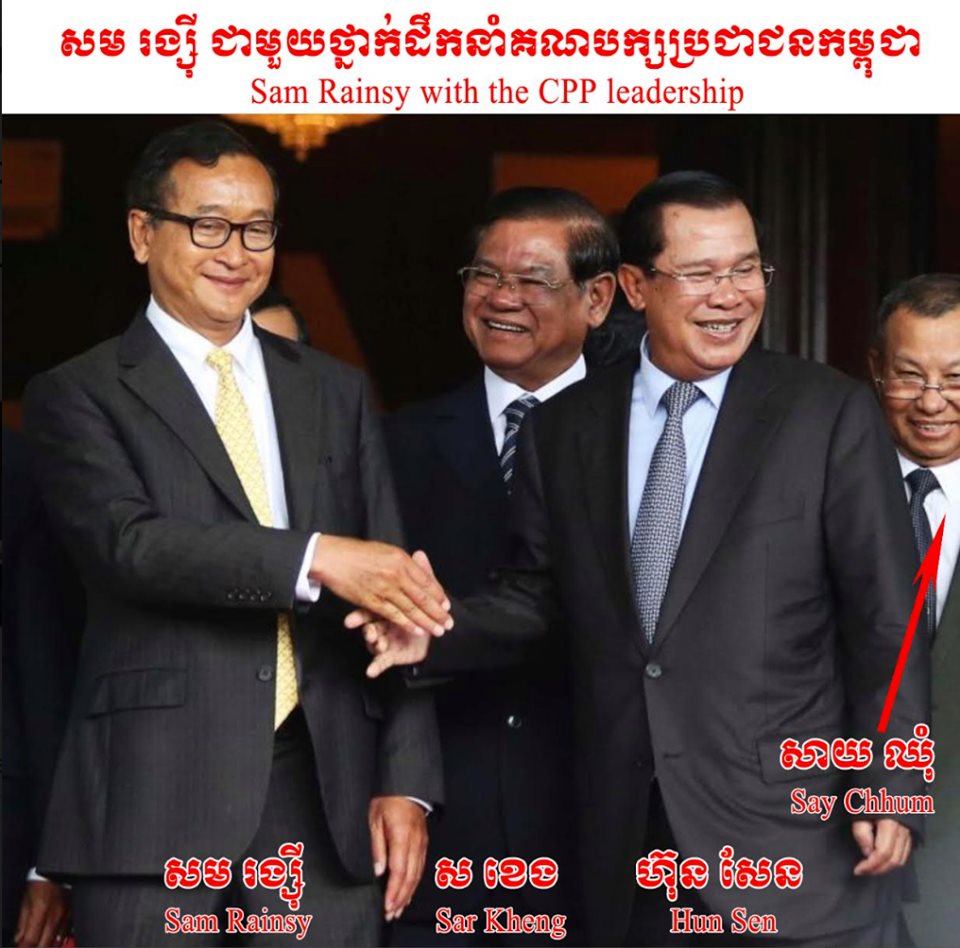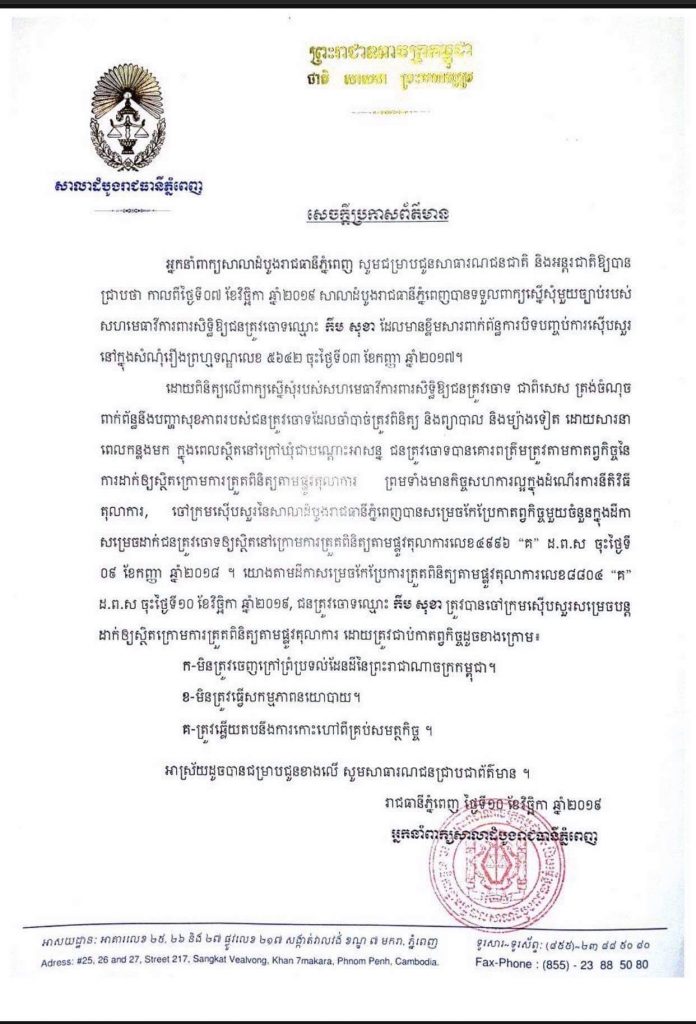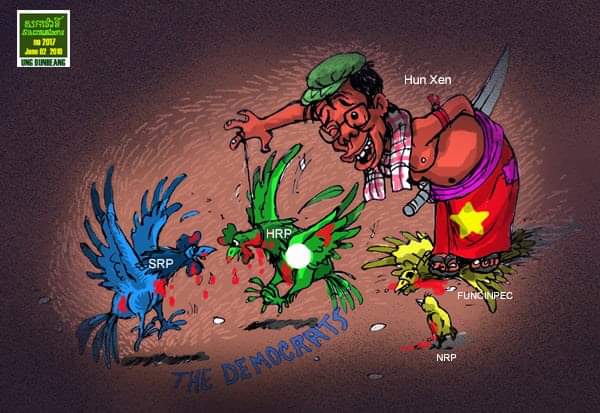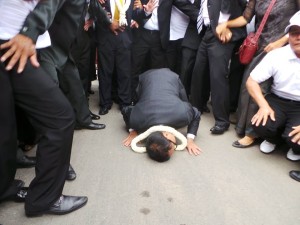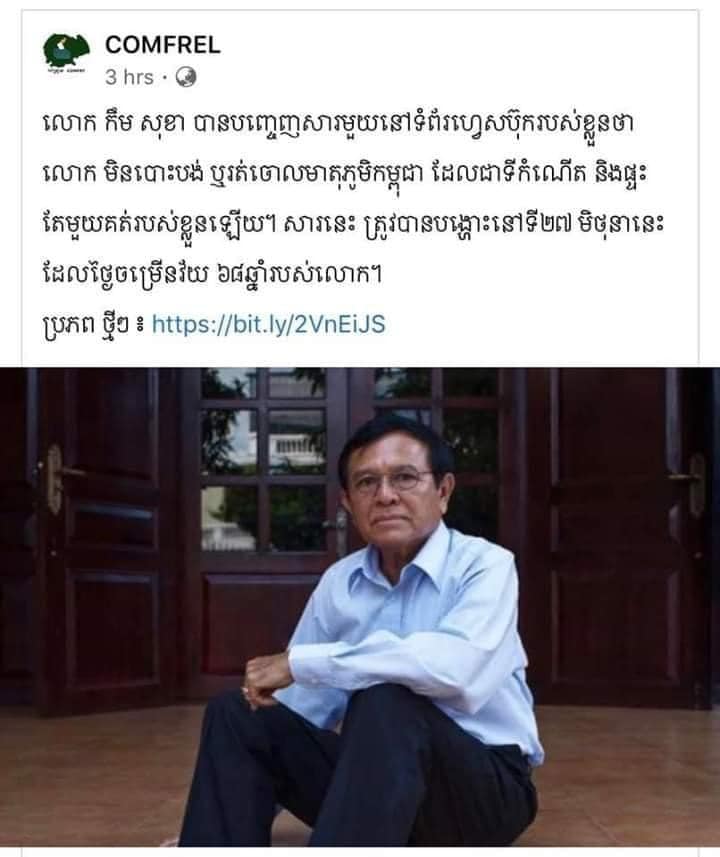
តាមរយៈសារនេះ លោកកឹម សុខា កំពុងសម្លាប់ប្រជាប្រីយភាពខ្លួនតាមលោកហ៊ុនសែនដែរ។ យុគសាកលភាវូបនីយកម្មនេះ(globalization) មនុស្សលោករស់នៅទីណា រត់ទៅទីណាក៏អាចស្រលាញ់ជាតិមាតុភូមិខ្លួនដែរអោយតែមានឆន្ទៈនយោបាយពិតនិងយោនិសោមនសិការពិត។ ផ្ទុយទៅវិញ អ្នកនៅក្នុងស្រុកដែលបំផ្លាញយុត្តិធម៍ ប្រជាធិបតេយ្យ និងសិទ្ធិមនុស្ស ជាពិសេសធនធានធម្មជាតិនោះគឺអាក្រក់ជាងនៅក្រៅស្រុកដែលរមែងជួយជ្រោមជ្រែងទាំងធនធានបញ្ញានិងរូបីយបណ្ណអន្តរជាតិជួយស្រុកទេសវិញមិនដែលដាច់។
សម្រាប់ភាពជាមេដឹកនាំ បើណាប៉ូលេអុងមិនរត់ទៅក្រៅប្រទេសទេ គាត់មិនអាចរំដោះបារាំងពីការឈ្លានពានបានឡើយ បើម៉ៅសេទុងមិនរត់ទៅអឺរ៉ុបទេ គាត់គ្មានលទ្ធភាពបង្រួបបង្រួមចិនបានឡើយ បើព្រះបាទជ័យវរ្ម័នទី២មិននៅប្រទេសជ្វាឬអាណាចក្រសៃលេន្ទ្រៈទេ ព្រះអង្គមិនអាចរំដោះប្រទេសនេះចេញពីកណ្តាប់ដៃបរទេសបានឡើយ បើសម្តេចអង្គដួងមិនបានរៀនសូត្រនៅសៀមទេ ព្រះអង្គក៏គ្មានការយល់ដឹងអាចសរសេរលិខិតទៅបារាំងអោយមកដាក់អាណាព្យាបាល(protectorate)រំដោះកម្ពុជាពីយៀកណាមនិងសៀមបានឡើយ។
ការចោទអ្នករត់ចេញពីស្រុកព្រោះការផ្តន្ទាទោសនយោបាយថាមិនស្នេហាជាតិដូចអ្នកនៅក្នុងស្រុកគឺជាភាសារើសអើងបែបមនុស្សអវិជ្ចាប៉ុណ្ណោះ ហើយនេះជាសាររបស់លោកហ៊ុន សែន ក្នុងការបំបែកបំបាក់សម្ព័ន្ធភាពពីលោកកឹម-សុខានិងសម រង្ស៊ីក្នុងស្មារតីសង្គ្រោះជាតិ។

